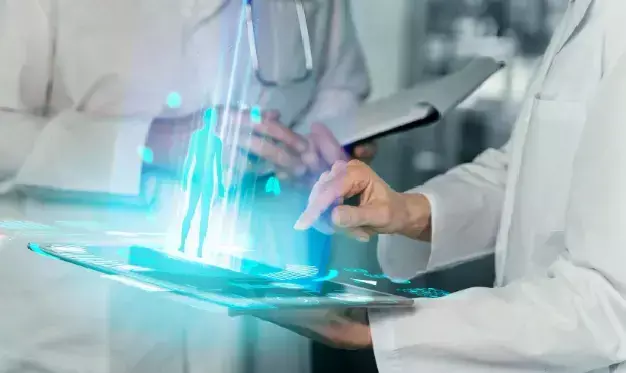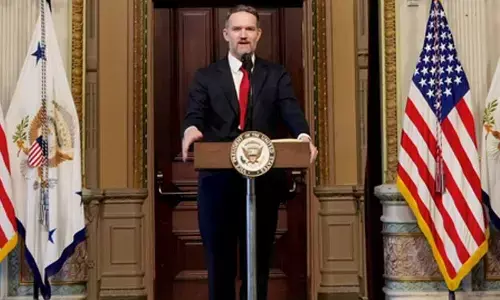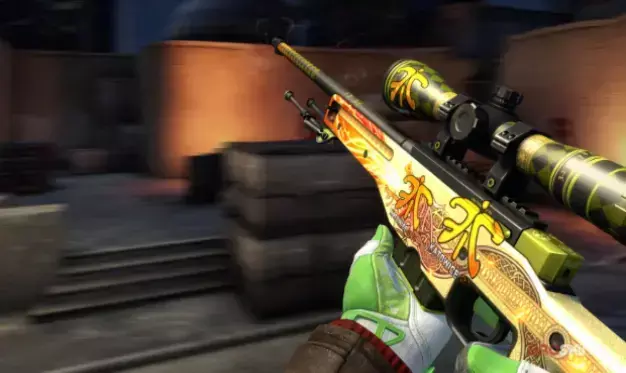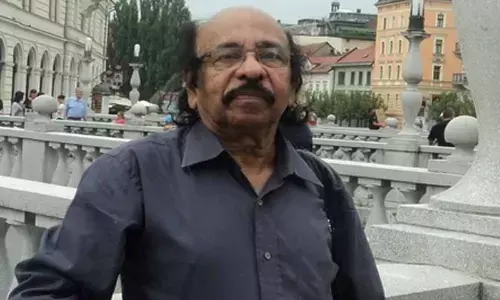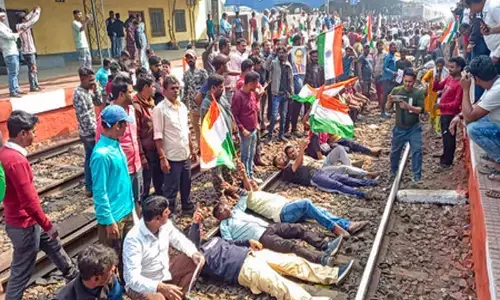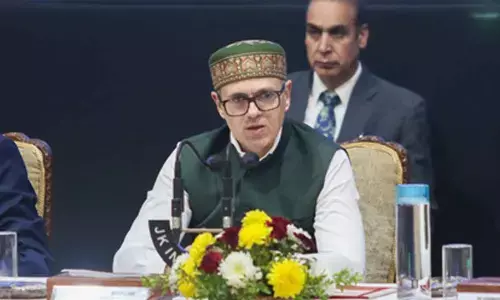Fighting for rights with dignified dissentt

March 31, 2017 would be written in golden letters in the history of country’s judiciary. For it was on this day, the noble profession of advocacy got back its nobility. In recent times, the prestige of this profession was eroded considerably due to defiant and at times, ugly methods of protests, strikes, sit-ins, slogan-shouting, etc. adopted by a section of advocates in the country.
March 31, 2017 would be written in golden letters in the history of country’s judiciary. For it was on this day, the noble profession of advocacy got back its nobility. In recent times, the prestige of this profession was eroded considerably due to defiant and at times, ugly methods of protests, strikes, sit-ins, slogan-shouting, etc. adopted by a section of advocates in the country.
But now there has been a paradigm shift in the method of dissent expressed by the legal fraternity. On March 31 the Bar Council of India gave a nationwide call to the advocates to protest against the proposed amendments in the Advocate Act. The amendments suggested by the Law Commission are aimed at disciplining the unruly among the advocates. And for this, it is proposed to impose harsh penalties including suspension from the profession.
True, as we said in these columns on last Monday, there may be some justification in introducing the proposed amendments, but singling out the advocates alone, would not serve the purpose. Therefore, we proposed a model of ‘participatory judiciary’ where judges, advocates and employees of a court can have interaction periodically and constructive ways could be devised to resolve the irritants in smooth and effective functioning of the court.
Perhaps, taking a leaf from this suggestion, the Supreme Court Bar Association (SCBA) executive committee adopted the following Resolution vis-a-vis the countrywide protest call:“The SCBA being the Apex Bar of the Country feels that it is its duty to provide leadership to the entire legal fraternity in this hour of crisis.
Therefore, the executive committee resolves and calls upon all its members to wear a white arm band as a mark of protest against the proposed amendments on March 31 and also as a mark of solidarity with the entire legal fraternity and protesting lawyers of thecountry.”Indeed, this is the noble way to protest and it will have a salutary effect on the powers that be.
Jurisdiction issueWhether a court constituted under Section 91 (1) of the Maharashtra Cooperative Societies Act, 1960 has jurisdiction to entertain the service matters like claims of salary and arrears of salary, etc. of the employees/ officers of co-operative societies was the question in Civil Appeal No. 1488 of 2017 before the Supreme Court.
The court after an elaborate discussion on the subject has ruled in the negative and stated that the Cooperative Court has not been bestowed upon such a jurisdiction.Almost in all States the Cooperative Courts and Appellate Tribunals have been established under the relevant State Cooperative Societies Acts and they invariably have a provision for adjudication of disputes, etc.
Therefore, the apex court ruling given in The Maharashtra Cooperative Housing Finance Corporation Ltd. Versus Prabhakar Sitaram Bhadange, now sets at rest the doubt and declares that the service matters of the employees are not within the purview of a cooperative court.
Criminal law practices under lense Expressing its serious concern to ensure uniform best practices in criminal laws in the country, the apex court while taking suo motu cognisance of suggestions made in this regard by R Basant, a senior advocate of the Supreme Court,
has issued notices to the Registrar-Generals of all High Courts and Chief Secretaries / Administrators/ Advocates General/Senior Standing Counsels of all States and Union Territories to give their views and suggestions on making the best uniform practices in criminal procedure.The Centre has already scrapped about 1,100 outdated laws and has been in the process of identifying more of such statues which are gathering dust.
Meanwhile, the efforts by the authorities concerned and now the highest judiciary in streamlining the procedures will go a long way in ensuring transparency and speed in delivering justice.SC Vs automobile cos Coming down heavily on some of the automobile companies which were fully aware way back in 2010 that all vehicles would have to convert to BS-IV fuel on and from April 1, 2017, but did not switch over to the manufacture of BS-IV compliant vehicles,
the apex court directed that on and from April1, 2017 such vehicles that are not BS-IV compliant shall not be sold in India by any manufacturer or dealer.In other words, with effect from April 1, 2017 only BS-IV compliant vehicles whether two-wheeler, three-wheeler, four-wheeler or commercial vehicles can be sold in India by any manufacturer or dealer.
The Supreme Court in its order on March 29 opined, “ the health of the people is far, far more important than the commercial interests of the manufacturers or the loss that they are likely to suffer in respect of the so-called small number of such (non-BS-IV compliant) vehicles.” The apex court also prohibited all the vehicle registering authorities under the Motor Vehicle Act, 1988 from registering such vehicles that do not meet BS-IV emission standards, except on proof that such a vehicle has already been sold on or before March 31, 2017.
Now that the BS-III and other versions of vehicles except BS-IV compliant vehicles cannot be sold and registered, the stock of such ‘junked vehicles, estimated at 8.24 lakh altogether, poses a problem for the automobile companies and dealers.
While the companies are busy exploring possibilities to export such vehicles, some have sold many units by offering rebates to the buyers on or before March 31, the deadline.
Some others, however, seem to have been hell-bent upon replicating the sham gold sale following the announcement of demonetisation on November 8, 2016. Backdated invoices will still offer a loophole to such dealers who have with them stock of unsold BS-III compliant vehicles.
Notwithstanding the genuine concern of the apex court for the health and safety of the common man, a million dollar question is still looming large on our faces is what about millions of ‘old’ and rickety vehicles still plying on our roads and killing thousands of people every year? Why do we not discard such vehicles, say of over 15 years of age, altogether? These questions certainly do deserve the attention of the judiciary as well as the government in the right earnest.
H c Upadhyay









